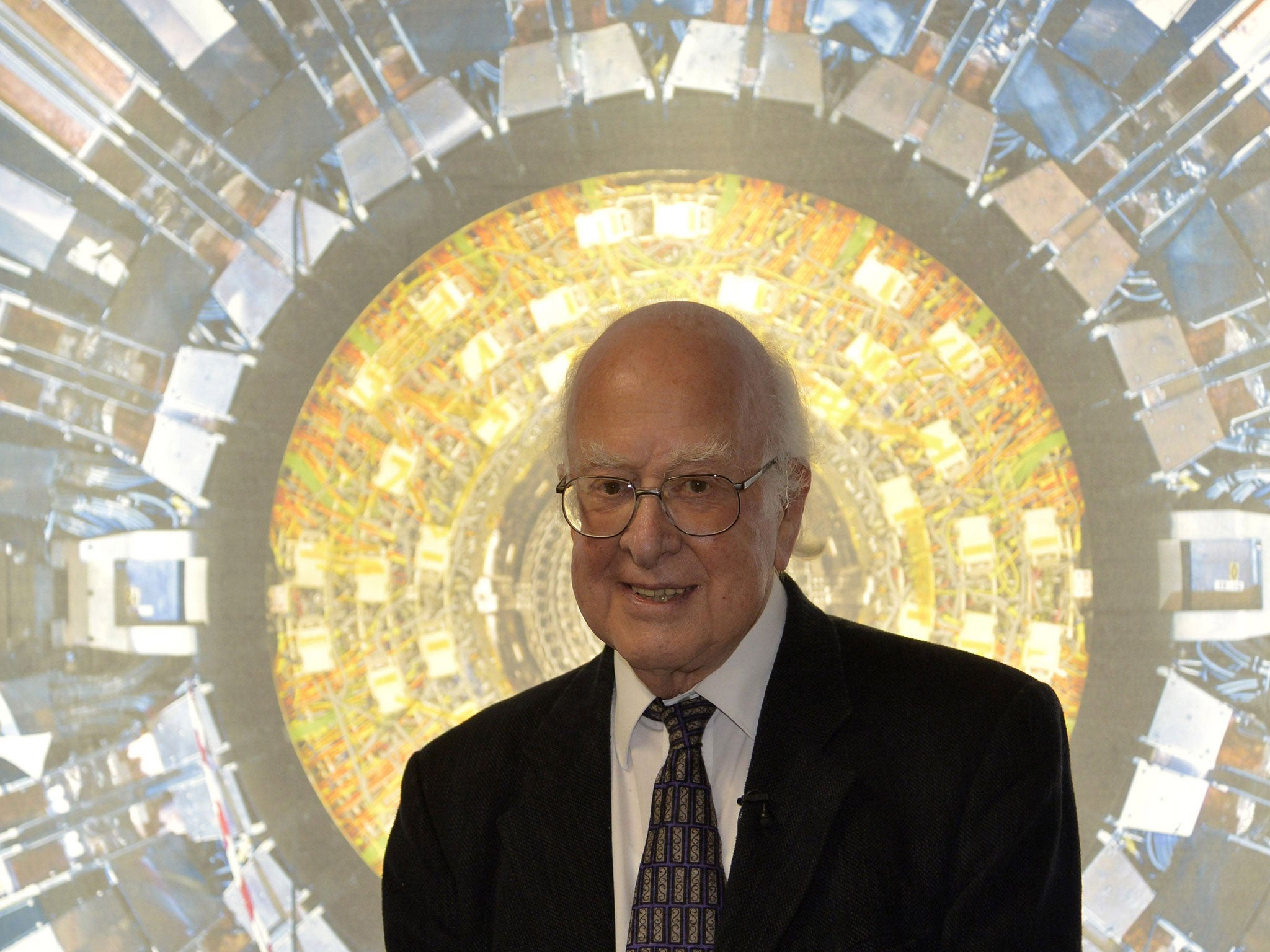Autumn Statement 2013: New space technology centre to be named after Peter Higgs, the father of the 'God particle'
Chancellor announces new £11m 'Higgs Centre for Innovation'

Peter Higgs, the Edinburgh University scientist who proposed the existence of the “God particle” half a century before it was discovered by particle physicists in Geneva, is to be honoured with a new £11m space technology centre named after him.
The Higgs Centre for Innovation was announced today by Chancellor George Osborne in the Autumn Statement as part of a series of financial boosts to British scientific research and development over the coming years.
Mr Osborne said that the Higgs centre in Edinburgh will provide cutting-edge academic instrumentation and “big data capabilities” to support high-tech start-ups and academic researchers specialising in astronomy and particle physics.
The Higgs Centre for Innovation is due to open in 2016 and will be constructed on the site of the UK Astronomy Technology Centre operated by the Science and Technology Facilities Council (STFC) at the Royal Observatory, Edinburgh. It is a fitting tribute to Professor Higgs who travels to Stockholm this week to pick up his share of the Nobel Prize in Physics, announced in October.
The new centre will aim to build bridges between academia and industry. In addition to a team of scientists and students, the centre will house up to 12 small businesses.
Professor Higgs, 84, said after Mr Osborne's announcement: “This support from the Treasury and the STFC will create an environment in which future generations of scientists from around the world can share and develop ideas.”
Mr Osborne also announced £270m of new money to fund a five-year research programme in a network of quantum technology centres specialising in the new fields of quantum computing and cryptography.
In addition, he said that a £375m will be spent over the next five years to pay for collaborative research programmes with “emerging powers” such as China and India. This is in addition to £80m over five years to help British scientists and companies to build stronger links with the space programmes of emerging nations.
“International collaboration is essential to progress in science. The UK has arguably the best scientists in the world and the emerging scientific powers bring their own skills to the table, in many cases backed by large scale investment,” said Paul Nurse, president of the Royal Society.
“The fund announced by the Chancellor today will allow the UK to further capitalise on our competitive advantage in science to drive forward our own economic interests and global advances in areas such as health and energy,” Dr Nurse said.
Other Treasury initiatives include a £10m prize for a town or city to develop a consumer test site for driverless cars, and a £5m investment fund to promote the adoption of electric vehicles and ultra-low emission transport for public-sector organisations.
Subscribe to Independent Premium to bookmark this article
Want to bookmark your favourite articles and stories to read or reference later? Start your Independent Premium subscription today.

Join our commenting forum
Join thought-provoking conversations, follow other Independent readers and see their replies